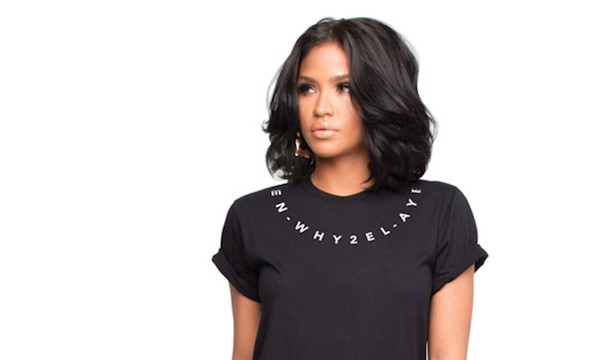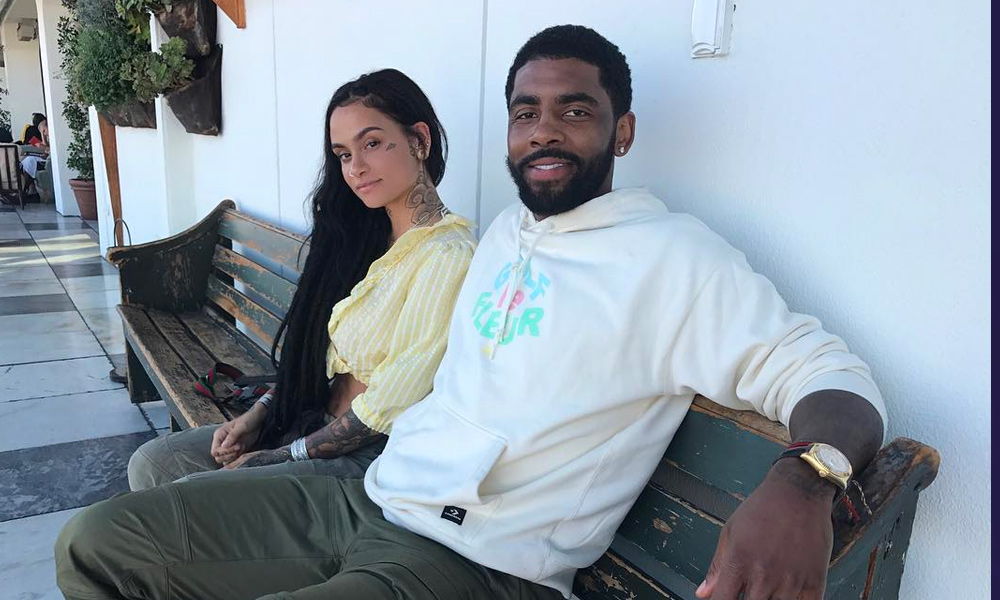Singer/model Cassie made it her point to get something off her chest after a blogger posted some not so nice words about her. Currently fighting a case of the flu, the Bad Boy songstress felt compelled to hit back at blogger Sandra Rose after she posted an article comparing Cassie’s sickness to Peaches Geldof, a journalist who passed away last week.
Cassie took to Instagram and wrote:
“@sandrarose … A friend of mine sent me a bullshit article you wrote about me today. At first I laughed it off as always but then, at the end, you compared me taking care of my sickness to Peaches Geldof passing this week, asif that's my fate (God rest her soul). YOU are disgusting. THE POOR GIRL JUST PASSED!! Let her rest in Peace and don't wish death on me. You are not a journalist. You are an angry little girl or old maid, who knows? I'm assuming you aren't getting paid and maybe that's why you sound so angry?? If you are getting money off of that over opinionated blog, someone needs to start a petition for you to no longer have a job. When I looked through more of your posts I realized that you just sound like you're PMSing or maybe it's menopause ???? Whatever it is, I think it's in your best interest to go see someone about it and keep my name off of your disgusting blog. What really fucked me up was the fact that on your twitter you brought up@dkbwear who just passed as well, it wasn't that you reported it, it was your delivery. YOU ARE A DISGUSTING HEARTLESS HUMAN BEING and all I can do is pray for you. How sad it is that you choose to live in such a negative light. I always ignore the bullshit but you touched on some topics that are just so wrong. You don't deserve an opinion about society anymore. Next time I see you lingering in Atlanta club like a creeper, I'll tell you to your face.”
Rose has received her share of backlashes over the years for her post about celebrities — The most popular was her back at forth with pop star Rihanna.
What’s your thought Roomies?
Are you tired of the toxicity that often plagues online platforms? Look no further than the recent confrontation between Cassie and a blogger who made ‘disgusting’ comments.
In this article, we delve into the boundaries of free speech in the digital era and explore the ethics of publicly calling out others online.
Imagine stumbling upon a heated exchange on social media where Cassie, known for her candid personality, fiercely defends herself against a blogger’s hurtful remarks. As you read through their intense back-and-forth, it becomes evident that Cassie is not one to shy away from standing up for what she believes in. With each scathing response, she takes an uncompromising stance against hate speech and refuses to let anyone get away with derogatory comments unchallenged.
As society grapples with the increasingly blurred lines between freedom of expression and harmful discourse online, it has become essential to examine how these digital spaces impact our interactions. This incident prompts us to question whether there are limits to free speech when it comes to spreading negativity or engaging in personal attacks.
Additionally, we must consider the ethical implications of calling out individuals publicly on social media platforms, as it seems Cassie’s intention was not only to defend herself but also to hold this blogger accountable for their hurtful words. Join us as we navigate through this complex landscape and shed light on these crucial discussions surrounding free speech and online conduct in today’s digital age.
The Boundaries of Free Speech in the Digital Era
You can’t just hide behind the anonymity of the internet and spew your vile opinions without consequences, it’s like throwing a grenade into a crowded room and watching the chaos unfold.
In this digital era, where everyone has a platform to express their thoughts, it is important to acknowledge that free speech comes with certain boundaries. While freedom of expression is a fundamental right, it should not be used as an excuse to spread hate or harm others.
The rise of social media platforms has given individuals the power to reach millions with just a few keystrokes. However, this newfound freedom should not be taken lightly. Just because you are behind a screen doesn’t mean you can disregard basic principles of respect and empathy.
Words have power, and when they are used irresponsibly or hatefully, they can cause real harm to individuals and communities.
It is crucial for us as users of these platforms to be mindful of our words and actions online. Engaging in constructive conversations or debates is healthy for society; however, resorting to personal attacks or spreading misinformation only leads to divisiveness.
The digital era may offer unprecedented opportunities for communication and self-expression, but we must remember that we are still accountable for what we say online. Let us use this incredible tool responsibly and strive towards fostering an inclusive and respectful online environment for all.
The Ethics of Publicly Calling Out Others Online
Confronting others publicly on social media raises questions about the ethical implications and potential consequences of such actions. When you publicly call out someone online, you’re essentially putting them on blast for everyone to see. While it may feel satisfying in the moment, it’s important to consider whether this approach is fair or justified.
Publicly calling out someone online can have severe repercussions. It can lead to a public shaming that can result in significant emotional distress for the person being called out. Additionally, it opens up the possibility of mob mentality, where others join in on the attack without fully understanding the context or consequences of their actions. This can further escalate the situation and potentially ruin someone’s reputation.
Moreover, publicly calling out someone online lacks nuance and fails to promote meaningful dialogue or resolution. It often devolves into a back-and-forth exchange of insults and accusations, rather than fostering understanding or growth. Instead of resorting to public humiliation, consider addressing your concerns privately or engaging in constructive conversations that promote empathy and mutual respect.
While it may be tempting to call out others publicly online when they’ve done something wrong or offensive, it’s crucial to consider the ethical implications and potential consequences of such an action. Public shaming can cause significant harm and doesn’t contribute positively towards resolving conflicts or promoting understanding. Instead, strive for more compassionate approaches that encourage dialogue and growth both offline and online.
Conclusion
In conclusion, the incident involving Cassie’s response to a blogger’s ‘disgusting’ comments sheds light on the boundaries of free speech in the digital era.
While everyone’s entitled to their own opinions and beliefs, it’s essential to recognize that there are limits to what can be said without causing harm or offense to others.
Cassie’s strong condemnation of the blogger’s remarks serves as a reminder that words have consequences and that we should use our freedom of speech responsibly.
Furthermore, this incident also raises ethical questions about publicly calling out others online.
While it may feel empowering for individuals like Cassie to confront and condemn hurtful behavior, it’s important to consider the potential repercussions of such actions.
Publicly shaming someone can lead to a toxic online environment where empathy and understanding are replaced by anger and hatred.
It’s crucial for us all to strive towards fostering healthy conversations and finding constructive ways to address problematic behavior rather than resorting to public humiliation.
Founder and Creator of Singersroom.com and IncredibleWork.com. Follow me on Instagram at @gary.gentles.









